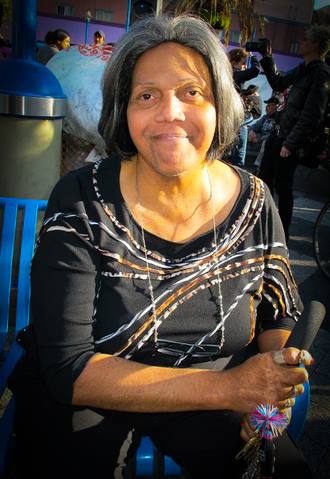Transgender Day of Visibility
 Our final day of #WomensHistoryMonth coincides with Transgender Day of Visibility. We want to shed light to the importance that trans activist Miss Major has contributed to LGBT rights and her work with the transgender community.
Our final day of #WomensHistoryMonth coincides with Transgender Day of Visibility. We want to shed light to the importance that trans activist Miss Major has contributed to LGBT rights and her work with the transgender community.
Miss Major Griffin-Gracy, best known as Miss Major is a formerly incarcerated, black trans woman and pioneering activist in the LGBT community since the Stonewall Riots in 1969, which she was one of the leaders, alongside Marsha P. Johnson and Sylvia Rivera. While she was incarcerated at a men’s maximum security prison in New York, she met Frank Smith, an instrumental player in the infamous 1971 Attica Prison Riot. During her time there, her interactions with him and other prisoners have politicized her and further invigorated her mission within civil and LGBT rights. When she moved to San Diego, she worked at food banks to provide for formerly incarcerated, homeless and addiction dependent trans women. At the height of the HIV/AIDS endemic, Miss Major had expanded her community organizing to include bringing awareness of the virus and working with different organizations, creating drop in services to access proper resources and organizing funerals weekly.
Her lifelong work has been dedicated towards awareness of trans injustice within the prison industrial complex. The prison industrial complex continuously serves as a violent space for reproductive injustices where the brutalization of black women, gender-non conforming persons and trans men have been heavily policed and unlawfully restricting access to prenatal care, options for abortion, harmful birthing spaces amongst a variety of other inequities. Prisons reinforce oppressive gender roles that prohibit trans and gender non-conforming persons from expressing their gender identities.
She is the executive director emeritus of the Transgender Gender Variant Intersex Justice Project, a group dedicated to the resistance and resilience to strengthen the fight against human rights abuses, imprisonment, police violence, racism, poverty and societal pressures.
